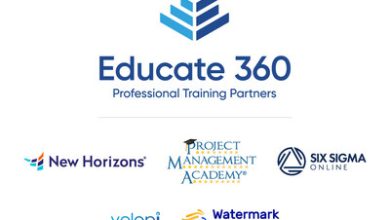A DevOps-based framework integrates automation, continuous integration, and agile methodologies to enhance medical device software development. By embedding compliance verification, automated testing, and infrastructure optimization into CI/CD pipelines, it accelerates delivery, reduces errors, and ensures regulatory adherence in healthcare technology systems.
— Medical device software development is increasingly complex as technological advances intensify functional requirements, while stringent regulatory frameworks demand exhaustive compliance verification. Traditional lifecycle management approaches demonstrate insufficient agility for contemporary healthcare technology demands. Published research introduces systematic DevOps-based optimization strategies synthesizing continuous integration, automated testing, and intelligent operations to transform how medical device software achieves quality assurance and regulatory compliance.
The analytical foundation rests upon core DevOps principles encompassing automation, continuous integration and delivery, and cross-functional collaboration. Research published in the Journal of Medicine and Life Sciences details methodologies leveraging automated build tools, testing frameworks including Selenium and JUnit, and deployment systems. Through frequent small-batch releases with rapid feedback, development teams achieve market responsiveness while maintaining stability. Integration of CI/CD toolchains, including Jenkins and GitLab CI, enables automation, while configuration management systems ensure environmental consistency.
Addressing critical challenges in medical device software development, research identifies four fundamental constraints: extended development cycles, intricate compliance verification requiring manual documentation, insufficient test efficiency across platforms, and inadequate operations automation. Traditional approaches struggle with delayed responsiveness, elevated error rates, limited test coverage, and prolonged downtime.
Proposed optimization strategies establish comprehensive solutions through four integrated approaches. Agile development divides projects into iterative cycles, enabling rapid feedback and early problem detection. Automated compliance checking integrates static code analysis throughout workflows, generating real-time reports and embedding verification within CI/CD pipelines to ensure adherence to FDA and ISO standards. Refined test case management implements systematic classification by function and risk, establishes priority-based execution, deploys automated frameworks, and monitors coverage. Optimized operations leverage Infrastructure as Code and automated deployment to standardize configurations and enhance cross-team collaboration.
Through systematic software development supporting reliability improvements, compliance maintenance, and efficiency enhancements, implementation validates theoretical frameworks in clinical environments where system stability impacts patient safety.
This research originates from Minkang Zhang, holding a Master of Science in Computer Science from the University of Southern California and a Bachelor of Science in Electrical and Computer Engineering, Cum Laude, from The Ohio State University. Professional specialization encompasses medical device software development leveraging DevOps practices, validation and verification, debugging, and machine learning system development utilizing CNTK and OpenCV for automated recognition. Technical proficiency spans Java, C#, Spring Boot, and microservices. Project contributions include neural network development, achieving 95% accuracy, and AI agent implementation.
These contributions advance medical device software engineering through rigorous integration of automation, compliance frameworks, and agile methodologies. By synthesizing continuous integration with regulatory requirements and collaboration models, this work establishes actionable pathways for accelerating development while maintaining quality standards. Demonstrated success in reducing error rates and shortening time-to-market positions. DevOps-based lifecycle management is essential infrastructure for medical device software development, providing implementation guidance for healthcare technology organizations navigating the challenges of innovation velocity and regulatory compliance.
Contact Info:
Name: Minkang Zhang
Email: Send Email
Organization: Minkang Zhang
Website: https://scholar.google.co.uk/citations?user=-V181nEAAAAJ
Release ID: 89175201
If you detect any issues, problems, or errors in this press release content, kindly contact [email protected] to notify us (it is important to note that this email is the authorized channel for such matters, sending multiple emails to multiple addresses does not necessarily help expedite your request). We will respond and rectify the situation in the next 8 hours.


